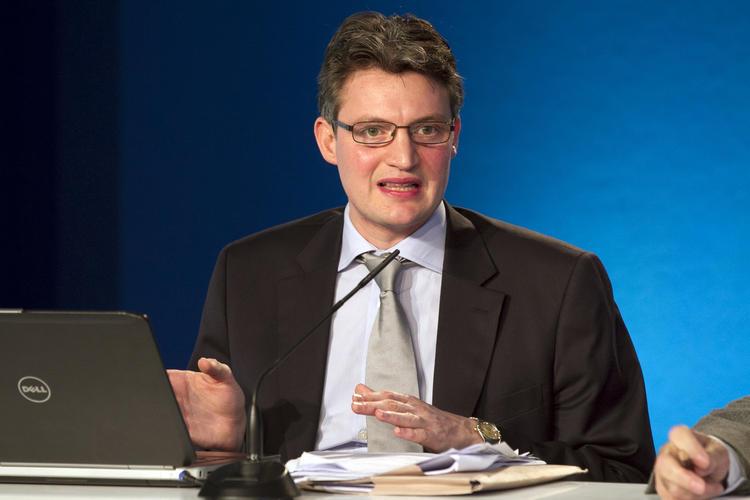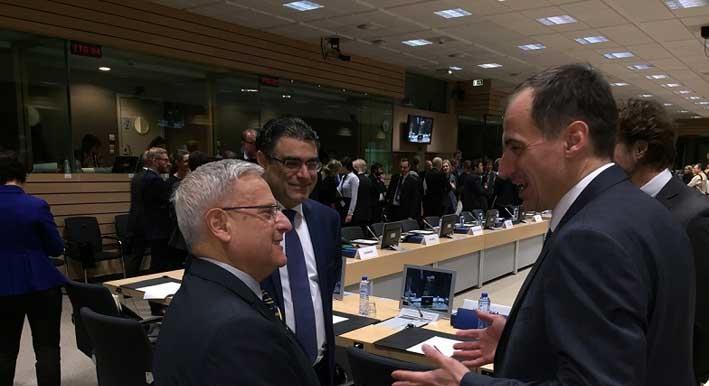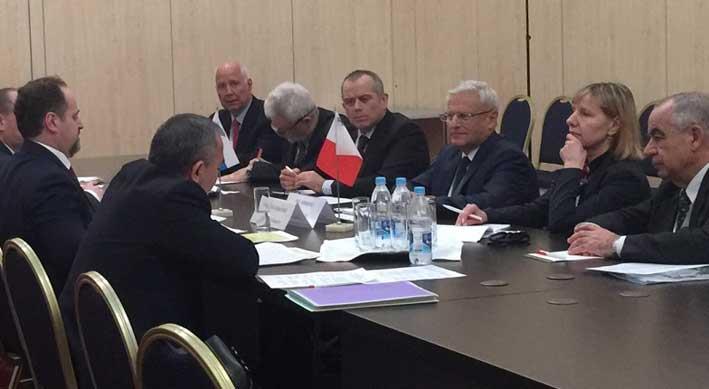Former Minister Leo Brincat says he will ensure, should he be accepted to the European Court of Auditors, that the Court would carry out a full investigation in cases regarding irregularities or illegalities involving Maltese persons.
He was responding to a questionnaire sent by the European Court of Auditors, and seen by the Malta Independent. Mr Brincat will be facing the European Parliament's budgetary committee on Monday in a bid to become Malta's representative in the European Court of Auditors, after the rejection of the government's first nominee, Toni Abela.

International News organisation Euractiv had highlighted that Mr Brincat’s defence of Minister Konrad Mizzi during the Panama Papers scandal, in terms of his vote to turn down a no confidence motion of the embattled minister, while also referencing that he is Malta’s ECA nominee.
According to news reports, he was also previously asked whether he believed Minister Konrad Mizzi should resign, to which he said that he was not in a position to comment.
As a result, PN MEP David Casa had highlighted that this might be a problem point that may be brought up during the grilling.
Mr Brincat, in the questionnaire, was asked how he would deal with a major irregularity or even fraud and/or corruption case involving persons from Malta. In response, he said he would deal with any major case of irregularity, fraud, or corruption in the same way for all cases irrespective of whether they may be related to Malta or to any other EU Member State.
“Given that as a Member of the Court my first duty would be towards the Court of Auditors and its respective functions, I will also ensure that the Court carries out a full investigation to establish all the relevant information regarding the extent of the irregularity/illegality while endeavouring to identify the players that may be involved”.
“In consultation with the Members of the Court and upon scrutinising the resultant findings, the case would then be instantly referred to OLAF. Where warranted, I will also discuss with the President of the Court. To perform my function with due independence, impartiality, integrity, diligence and rigorous scrutiny as in cases involving any other Member State is a sine quo non for any member of the European Court of Auditors. To fail to do so would not only undermine the ECA itself while jeopardising my own position, but it will also facilitate, rather than address, misallocation of resources and moral hazard”.
“Since I have always believed in a pro-active approach in all the fields of activity in which I have been involved over the years, I think that what is further needed is a series of well thought out general systemic preventive actions to enhance the Court’s effectiveness while decreasing and minimising the prospects of the occurrence of such major irregularities”.

Government took a hit when their last nominee, former PL Deputy Leader Toni Abela, withdrew his candidacy after the European Parliament gave an unfavourable opinion of him being nominated to the Court.
When Toni Abela was the nominee, he had said in the very same questionnaire, that should the European Parliament pronounce an unfavourable opinion he will “feel obliged” to withdraw his candidacy.
Mr Brincat, however, says differently. “I would review my nomination, taking into full account the deliberations that would have taken place and reasons adduced by the Committee for its recommendation”. As such, Mr Brincat is leaving the situation open, and if the EU Parliament does not approve of his nomination, he might not back down.
Mr Brincat will face the EU Committee on Budgetary Control on Monday.
Asked to list his professional experience in public finance, Mr Brincat referred to his experience as Minister for Finance and Commerce, as well as his experience as Minister for Sustainable Development.

“Throughout the years, I have been responsible for, inter alia, resource mobilisation, prioritisation of programmes and the budgetary process, always insisting on efficient management of resources and controls. Budget planning, compliance, implementation and control were pivotal”.
“When responsible for Finance I had actively engaged myself in setting budget objectives together with key ministry officials, led discussions geared at translating objectives into quantifiable targets, oversaw follow up action to ensure that budget limits were adhered to, took corrective action to deal with any excess spending, while reporting to Parliament on the achievement of set budgetary objectives. These multifaceted tasks provided an excellent opportunity for me to harness the budget management process”.
He mentioned that he was instrumental in his role as Finance Minister in 1997, in tabling the bill granting the National Audit Office autonomy. He mentioned that he also sat on the Public Accounts Committee. Mr Brincat also said that he was the main Opposition spokesman for the Economy and Finance between 1998 and 2004. He also spoke about international meetings and conferences he has attended.

Under the Treaty, the Court is required to assist Parliament in exercising its powers of control over the implementation of the budget. Asked how he would further improve the cooperation between the Court and the European Parliament, he said there should not be a static, one dimensional template, “but this should be part of a constantly evolving process that takes into account new challenges, threats and opportunities as they may arise. Rather than reacting to evolving situations, an optimal scenario should always see the Court one step ahead, harnessing creative and innovative ways as to how to enhance this process while strengthening its own dynamics. Unless the dialogue is continuous and regular there will always be a risk of growing complacency seeping in, that would in itself weaken the much needed detailed and constant understanding of the Parliament’s ever changing needs”.
“As a Member of the Court my duty would be to ensure that Parliament is presented with the findings of the Court in a spirit of open dialogue and collaboration. Through the presentation of audit methodologies, results, opinions and appraisals one should facilitate the process for Parliament to execute its function in relation to the budget in a more effective and timely manner, while constantly enhancing and refining the EU’s own regulatory framework. The increasing importance given by Parliament itself to the Court’s findings can only bolster and strengthen future exchanges of views and better appreciation of each other’s functions as respective key institutions within the Union itself”.
Members of the Court of Auditors must be completely independent in the performance of their duties. On this topic, Mr Brincat says: “As a member of the Court of Auditors, I will carry out my duties independently, meaning that I will neither seek nor take any instructions from any Government or from any other body, and I will refrain from taking any action which is not compatible with the actions of the Court”.